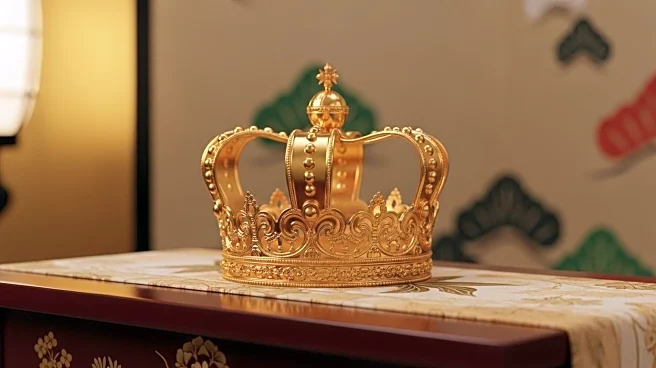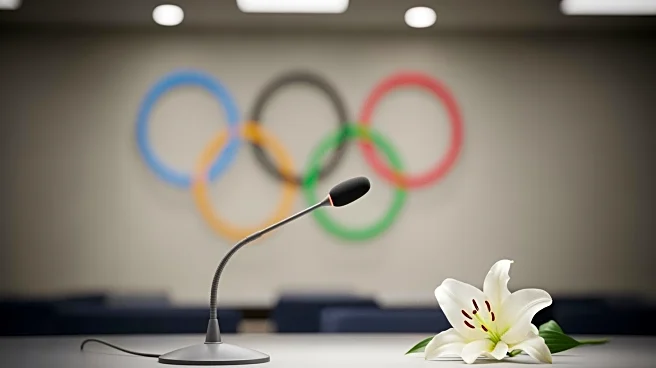What's Happening?
Japan's Prince Hisahito, the only son of Crown Prince Akishino and Crown Princess Kiko, has recently undergone coming-of-age rituals, marking his formal recognition as an adult. Hisahito, who turned 18 last year, delayed these ceremonies to focus on his college entrance exams. He is currently a freshman at Tsukuba University, studying biology with a particular interest in dragonflies. Hisahito is second in line to the Chrysanthemum Throne, following his father. The Japanese monarchy, the world's oldest, faces a succession dilemma due to its male-only policy and a dwindling number of male heirs. Hisahito's coming-of-age highlights the urgency of addressing succession issues, as he may be the last male heir in the family.
Why It's Important?
The succession issue in Japan's monarchy is significant due to its potential impact on the continuity of the world's oldest royal family. The male-only succession policy has led to concerns about the future of the monarchy, especially as Japan faces a rapidly aging and shrinking population. The debate over whether to allow female succession or adopt male descendants from defunct royal families remains unresolved. This situation reflects broader societal challenges in Japan, including gender roles and demographic shifts. The monarchy's future could influence national identity and cultural heritage, making the resolution of succession issues crucial for maintaining stability and tradition.
What's Next?
The Japanese government and conservative panels have proposed various solutions to address the succession crisis, including allowing female members to retain royal status after marriage and adopting male descendants from distant royal families. However, these proposals have stalled, leaving Hisahito to bear the burden of the monarchy's future. The debate over succession is expected to continue, with potential revisions to the Imperial House Law to allow women to succeed the throne. The outcome of these discussions could redefine the monarchy's structure and influence Japan's cultural and political landscape.
Beyond the Headlines
The succession debate in Japan's monarchy raises ethical and cultural questions about gender equality and the preservation of tradition. The male-only policy, rooted in historical practices, contrasts with modern views on gender roles and equality. The monarchy's future could serve as a catalyst for broader societal changes in Japan, challenging traditional norms and potentially leading to a more inclusive approach to royal succession. The resolution of these issues may also impact Japan's international image, as the country navigates the balance between tradition and modernity.








